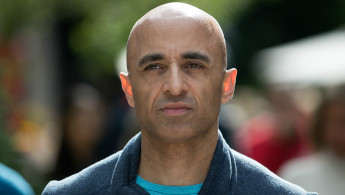UAE ambassador admits that Taliban embassy claims are 'half' true
Allegations that the Emirati government "tried to get the Taliban to open an embassy in their own country" in 2013, were first published in a New York Times article, which sourced al-Otaiba's leaked e-mails.
"At the encouragement of the United States, the United Arab Emirates was prepared to host a Taliban presence in Abu Dhabi," al-Otaiba noted in response to the article on Wednesday.
Al-Otaiba went onto suggest the UAE imposed conditions on the move, but claimed the militant Afghan group “refused all three conditions, and the UAE withdrew its offer".
The admission came at a time of tense relations between the UAE, its allies and Qatar, whom the former accuse of supporting extremist groups – one of which being the Taliban.
Abu Dhabi has often cited the 2013 opening of a Taliban embassy in Doha as an example of Qatar abetting Islamist militants.
But according to the New York Times, which holds the batch of al-Otaiba’s leaked emails, three former American officials confirmed this week that the UAE had in fact initially sought the Taliban embassy.
As part of a broader American-led effort to facilitate peace talks in Afghanistan, the Taliban’s embassy was later situated in Doha, according to American officials.
Al-Otaiba's emails were hacked and released in part in June since then several revealing stories about the UAE's covert operations have emerged.
The hackers, who go by the name "Global Leaks", claim the full database shows a clear picture of the UAE's lobbying arm and its detrimental effects on US interests abroad.





 Follow the Middle East's top stories in English at The New Arab on Google News
Follow the Middle East's top stories in English at The New Arab on Google News
![22 Arab countries at COP29 have rejected the targeting of fossil fuels [Getty]](/sites/default/files/styles/image_330x185/public/2024-11/GettyImages-2184289638.jpg?h=199d8c1f&itok=ptHl5bec)
![Dozens of people turned out for the funerals [Getty]](/sites/default/files/styles/image_330x185/public/2024-11/GettyImages-2185229760.jpg?h=e7c891e8&itok=1bctDcE6)
![The UAE is widely suspected of arming the RSF militia [Getty]](/sites/default/files/styles/image_330x185/public/2024-11/GettyImages-472529908.jpg?h=69f2b9d0&itok=Yauw3YTG)